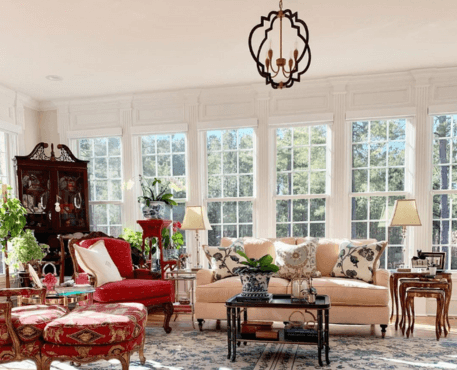A Detailed Exploration of Home and Decor: A Comprehensive Guide
Related Articles: A Detailed Exploration of Home and Decor: A Comprehensive Guide
Introduction
With enthusiasm, let’s navigate through the intriguing topic related to A Detailed Exploration of Home and Decor: A Comprehensive Guide. Let’s weave interesting information and offer fresh perspectives to the readers.
Table of Content
A Detailed Exploration of Home and Decor: A Comprehensive Guide

This document aims to provide a comprehensive guide to describing a home and its decor. It will delve into various aspects, offering detailed explanations and practical advice for effectively conveying the essence of a living space.
Understanding the Importance of Home and Decor Description
Describing a home and its decor goes beyond simply listing furniture and colors. It involves capturing the atmosphere, the personality, and the story that the space tells. This skill is crucial in various contexts:
- Real Estate: Detailed descriptions of homes are essential for attracting potential buyers, allowing them to envision themselves living in the space.
- Interior Design: Designers use descriptive language to communicate their vision to clients, ensuring a shared understanding of the desired aesthetic.
- Writing: Authors use descriptions of homes to create immersive settings, adding depth and richness to their narratives.
- Personal Expression: Describing one’s home allows for a nuanced and personal expression of individual taste and style.
Elements of a Comprehensive Home Description
A well-rounded description encompasses various elements, creating a holistic picture of the living space. These elements include:
1. The Structure:
- Type of dwelling: Is it a single-family home, an apartment, a townhouse, or a more unique structure?
- Size and layout: Describe the number of bedrooms, bathrooms, and other rooms. Mention any unique features like a basement, attic, or garden.
- Architectural style: Is it Victorian, modern, contemporary, or something else?
- Exterior features: Describe the facade, landscaping, and any notable features like a porch, balcony, or garage.
2. Interior Design:
- Overall aesthetic: Is the decor minimalist, traditional, eclectic, or a blend of styles?
- Color palette: What are the dominant colors used in the space? Are there accent colors or contrasting elements?
- Materials: Describe the materials used in flooring, walls, and furniture. Are there natural elements like wood or stone, or are they more modern materials like glass or metal?
- Lighting: What type of lighting is used? Is it primarily natural light, artificial light, or a combination of both?
3. Furniture and Decor:
- Key pieces: Highlight the most prominent furniture items, describing their style, material, and placement in the room.
- Accessories: Describe decorative elements like artwork, sculptures, plants, throws, and cushions. Mention any unique or interesting pieces that contribute to the overall aesthetic.
- Personal touches: Describe any personal items that add a sense of individuality to the space, such as family photos, travel souvenirs, or books.
4. Atmosphere and Feeling:
- Mood: Does the space feel welcoming, cozy, elegant, modern, or something else?
- Sensory details: Describe the sounds, smells, and textures that contribute to the overall experience.
- Storytelling: Share anecdotes about the home’s history or the stories behind specific pieces of furniture or decor.
5. Functionality and Practicality:
- Flow and layout: Describe how the space is organized and how it facilitates movement and activities.
- Storage solutions: Mention any clever storage solutions that contribute to the home’s functionality.
- Technology integration: Describe any smart home features or technology integrated into the space.
Using Descriptive Language Effectively
To create a vivid and engaging description, use a variety of descriptive techniques:
- Sensory details: Engage the reader’s senses by describing the sights, sounds, smells, tastes, and textures of the space.
- Figurative language: Use metaphors, similes, and personification to create imagery and add depth to your descriptions.
- Specific details: Instead of generic descriptions, use specific details about the size, shape, color, and texture of objects.
- Show, don’t tell: Instead of simply stating that a room is "cozy," describe the soft lighting, plush rugs, and comfortable seating that contribute to that feeling.
Tips for Describing Home and Decor
- Consider your audience: Tailor your descriptions to the specific audience you are writing for. For example, a real estate listing will focus on practical details, while a personal essay might focus on emotional connections.
- Focus on the key features: Highlight the most important and unique aspects of the home and decor.
- Use a consistent style: Maintain a consistent tone and voice throughout your description.
- Proofread carefully: Ensure your description is free of errors in grammar and spelling.
Conclusion
Describing a home and its decor effectively requires a thoughtful approach that combines factual details with evocative language. By focusing on the structure, design, furniture, atmosphere, and functionality, you can create a comprehensive and engaging portrait of a living space. This skill is valuable in various contexts, allowing you to communicate your vision, share your personal style, and create immersive experiences for your audience.








Closure
Thus, we hope this article has provided valuable insights into A Detailed Exploration of Home and Decor: A Comprehensive Guide. We thank you for taking the time to read this article. See you in our next article!